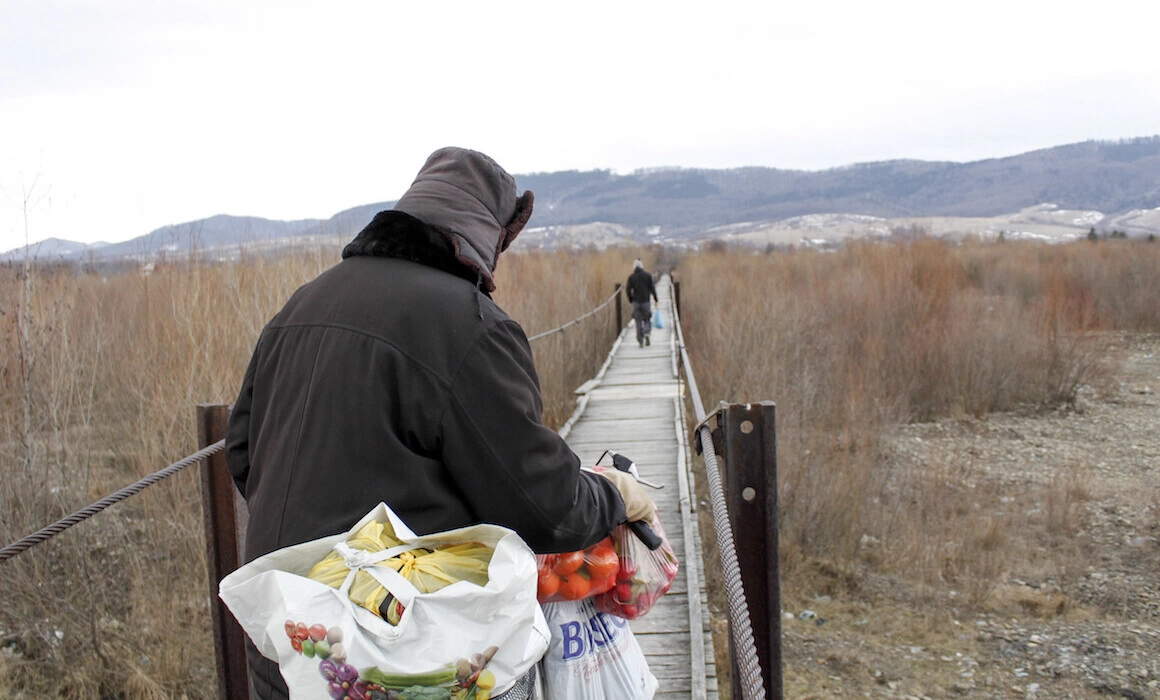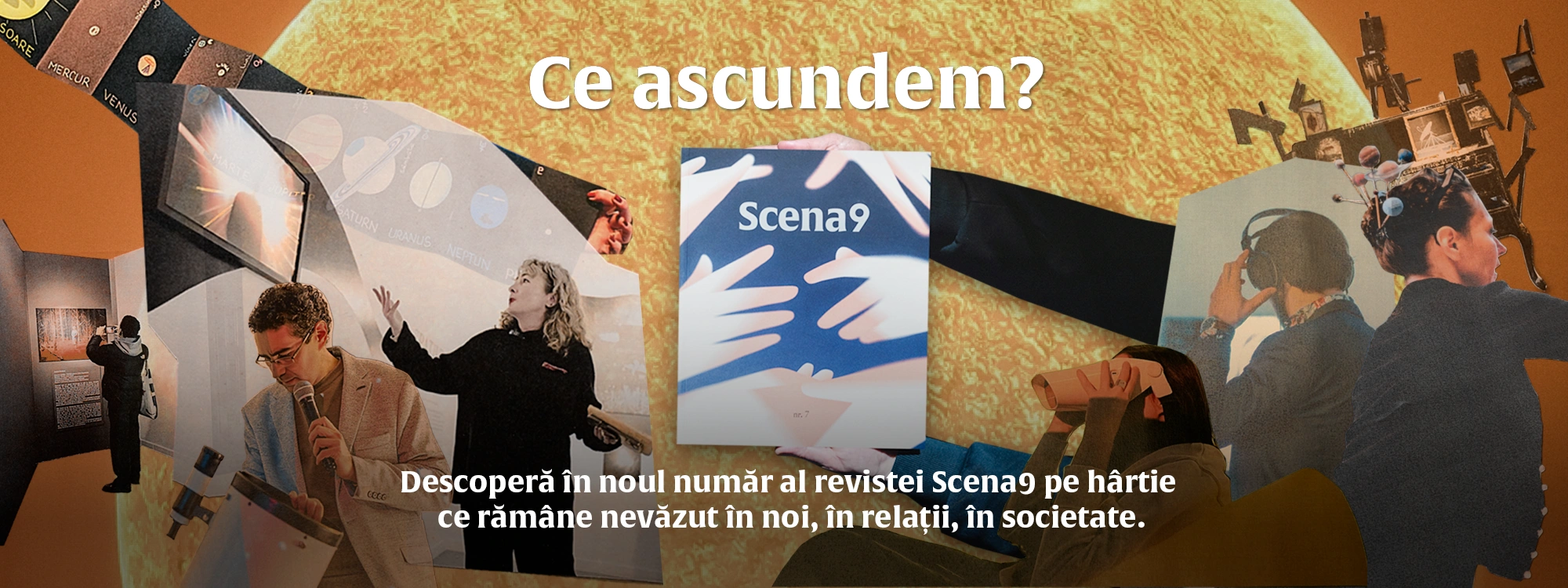For those who live close to Romania’s border with Ukraine, current times are just a figment of a more complicated history.
“There’s more of a panic with y’all in Romania than over at ours!,” Viorica laughs. She’s one of the peddlers who’ve come in from Chernivtsi, Ukraine, to sell their merch at the weekly market in Vicovu de Sus. This is a town in Suceava County located right next to the Ukrainian border.
It’s not the first time we hear this on our trip through the villages that line the border. We’ve come here to see what the locals have to say about the Russian-Ukrainian crisis and meet the Ukrainian Hutsuls in the mountainous parts of Bukovina.
Before our arrival to Vicovu de Sus, there was already talk in the local press of a Romanian Army military convoy having crossed Suceava County, of the military camp set up over the past few days in Suharău commune, a village in Botoșani County also located on the Romanian border with Ukraine, as well as of an American Black Hawk helicopter that had flown over the Siret customs point and landed in a nearby field.
Yet the atmosphere at the Vicovu market is somewhat more relaxed. As on every other Saturday morning, people have come here to buy or sell merchandise, eat grilled mince rolls, drink beer, or just gawk at stuff. The war doesn’t seem to be a subject of great interest to them, but this is merely a first impression. If you get to talking, you discover that their life stories reflect the area's complicated history in one way or another. These people understand full well the consequences of war and the ways in which community and family structures alter alongside borders.
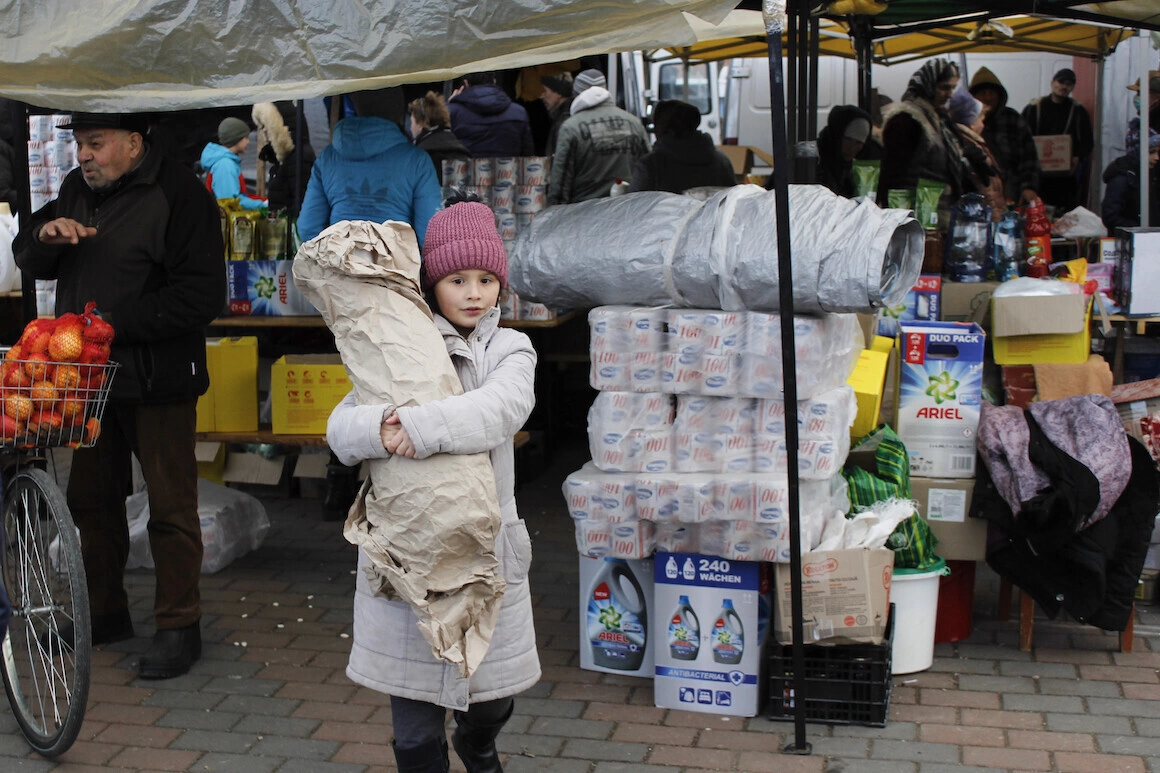
Before being declared a town in the 2000s, Vicovu de Sus was the largest commune in Suceava County. Its alternative name is “shoe country,” since it’s known first and foremost for its shoe factories, a small industry that employs some 2,000 locals (the story goes that a Ukrainian “brought the secret of creating shoes to Vicov” in the interwar era). It has the reputation of a well-off town (where “unemployment remains a mystery”), but also of a frontier hotbed teeming with black market cigarette networks (drones play their part in this).
If you walk down the main street, you get the sensation you’re downtown in a big city, not in a remote corner of Bukovina; everything here vibrates and shines like brand new, as if an entrepreneurial genie had descended upon this place simultaneously with the cigarette-stuffed drones. You find supermarkets, restaurants, and chic kiosks on the sidewalks, where you can get a Flat White and a halloumi burger. But just as you turn right past Pepco, Burger Time, and the Spartan fast-food restaurant and approach the market, you wind up in a different reality.
A barren field, lined with hundreds of stalls loaded with wares, SUVs and horse-drawn carts parked all in the same spot, plus trailers from which calves, purebred horses, pigs, and chickens emerge. This whole ruckus is enveloped in folk music and the smoke coming off the grills, which seems to expand all the way to Ukraine. You can quickly tell the Ukrainians apart by their merch (and sometimes their head scarves). The colorful labels on the bottles and cans, the heaps of smoked fish and sausages, the cookie and biscuit tins, and the bags of braided yellow cheese all catch your eye.
Selling at one of these stalls is Natalia, a spirited woman, currently appeasing a suspicious customer questioning the quality of her sausages. “Sir, I’ve been selling and eating these here for ten years. And, look at me, do I look bad?,” she asks, stepping back with her arms outstretched like a performer at the end of a show. The man’s eyes widen. He buys the sausages and scurries away in silence.
Natalia turns to us and explains, in the same tone she uses to reprimand her customers. “I’ll have you know the situation over in our country [Ukraine] is very good. Don’t you worry, nothing bad will happen to you. Putin needs Odessa, he needs the waters, that’s where the wealth is, he’s got no business in these here parts.”
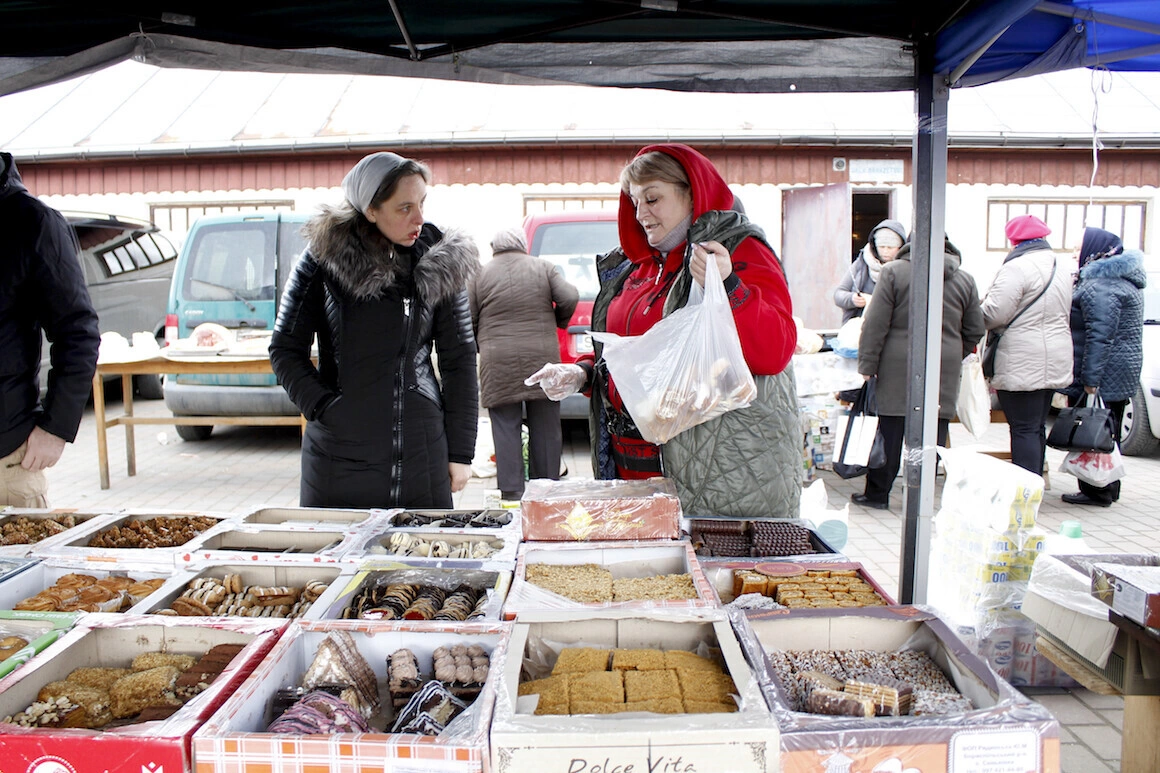
Natalia speaks Romanian very well, as do most Ukrainians around here. There's two types of merchants here: those who, like Natalia, live in Ukraine and only come to Romania for the markets, and those who moved over the past 10-15 years and settled permanently in Vicovu (they swing between the two countries; they visit their relatives in Ukraine and also buy their wares there). Doina belongs to the second category. The woman in her forties lives in Vicovu but hasn’t lost her connection with Ukraine. “People in Romania are more stressed out because of this war, but those over there are more at peace, there is no fear. It was the same when this whole epidemic started: in Romania people were completely lost, I don’t know how to put it, and in Ukraine they were unbothered, calm. How should I put this… People aren’t as fearful there, they’ve been through a lot, and now it’s all the same to them. And this Putin guy, he’s all talk. And, you know how it is, you get exactly what you’re scared of. Let me tell you what has changed: the situation has changed ‘cause everything’s become more expensive, even before there was talk of the war. They aren’t paying wages, but they keep raising prices on goods. And now we’re just holding on, trying not to starve.”
“We’re at the end of Ukraine, no one’s going to go there,” says a voice from the adjoining stall.
Yet Gina, a retiree from a neighboring village who’s come here to do her shopping, is truly concerned. She was born in Romania and has lived here her entire life, but has two brothers in Ukraine, who stayed on after the family fell apart. “I’m nervous for them, how could I not be?,” she sighs. “Don’t you see that these Russians are doing military exercises at sea? I don’t think they went there for no reason. And I’ll have you know I’m prepared to help my brothers. ‘Cause if this invasion comes, everyone’s going to be running for their lives. And we have two houses and my sister who lives in Austria called me up and told me to prepare the keys to the other house, in case the troubles start.”
Somewhere at one end of the market, some older locals, Romanians, are selling bacon, eggs, and cheese. They look somewhat detached, like unflinching observers. If the market was the scene of an ancient tragedy, they’d be the chorus.
“Man, I don’t think there’s going to be a war… So long as our guys don’t meddle with it…,” says Ion, one of them.
“We pray to God that nothing happens,” adds Ecaterina, a woman past the age of 70. “Of course we’re scared, ‘cause, I mean, if these Russians come, they’ll put us to shame. They’ll take our little chickens. They’ll take our little cows. It’s not as if they ask you anything beforehand. They kick you in the behind and that’s that. But, see, Ukrainians are used to fear, we’re more fearful. Let there be peace, because if there’s peace you know you can go out and hoe your fields without a care, but like this, if you hear the planes, you think, All right, but will I make it home to eat today?”
“All it takes is one nuke and you’re finished, you start crawling like a bug,” another merchant intervenes. She was born and raised in Vicovu de Sus. “Just let God make the world’s bigshots wisen up and make peace. People say times are tough right now, but I’m telling you they’re not that tough. It might be like that in the city, but in the country–you can survive. You don’t go on holiday anymore–and those are for the youth anyway–, but you can still make do. You’ve got an egg, milk, a tater in your pantry and that’s it. All you need is peace.”
Ecaterina retorts, “But can we have peace anymore? ‘Cause those Russians sure are stubborn–didn’t you see on TV, they want to take out all that stuff from [the NATO camp at] Deveselu. But, at the end of the day, as the saying goes… When times were tough, things were good. Now they’re bad and we’re still good.”
“The Americans butted in here and now they’re at each other’s throats and we’re the ones who have to suffer,” Ion mutters after a few minutes' silence. “What are the Americans doing here? Let them mind their own business in America.”
“But the Americans are protecting us, guarding us,” Ecaterina argues in jest, rather to annoy Ion, if anything.
“Like shit they’re guarding us. What’s there left to guard? Everything’s been stolen out here. The country’s already been sold.”
“They’re guarding our souls, Ioan,” Ecaterina laughs, her eyes closed.
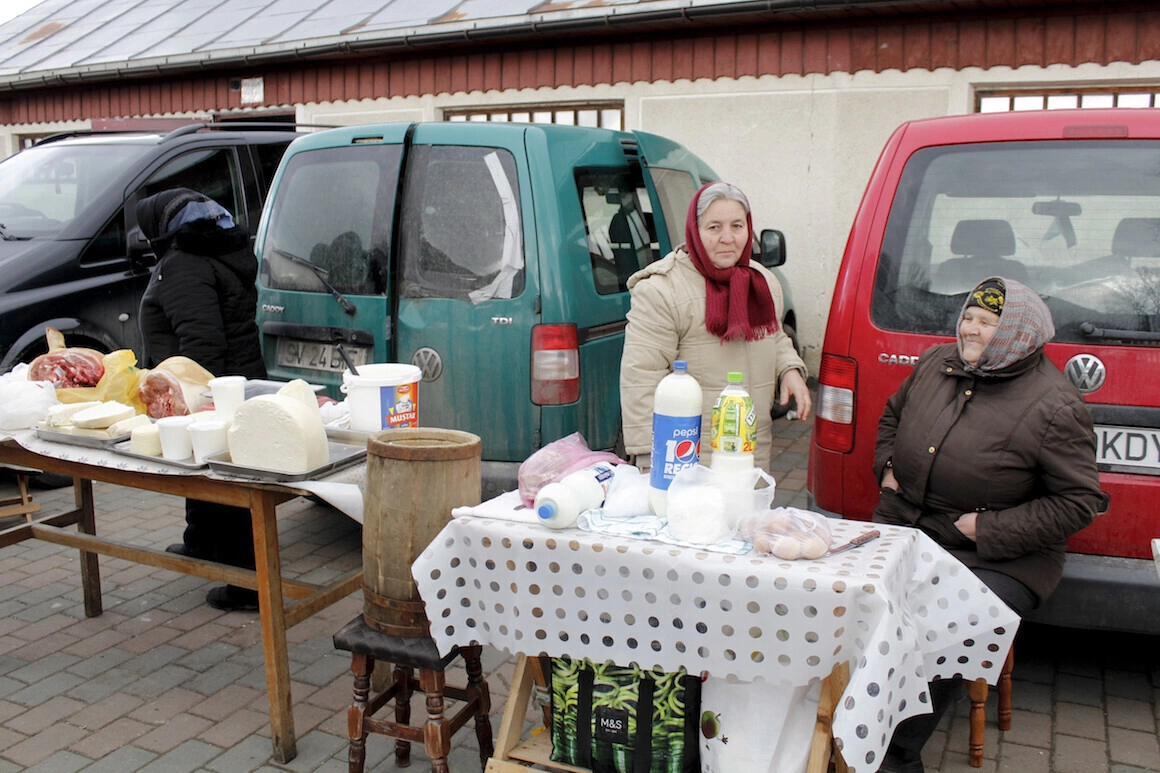
The market is about to end for the day and we start off, not before exchanging a few words with Mirela, a dairy producer who lives in a village 15 kilometers away from Vicovu. Mirela, a woman in her forties, is very calm and her gaze serene. She has us taste sheep’s cheese and cow curds, then takes out her phone and gestures to us to hold on a little while longer.
“I have the Bible downloaded to my phone. Let me read something to you. All these things were known beforehand–epidemics, diseases, wars. No matter if we’re scared or not, everything must happen as it was prophesied,” she says while scrolling through her phone. “Right, look here, Matthew 24: You will hear of wars and rumors of wars, but see to it that you are not alarmed. Such things must happen, but the end is still to come. Nation will rise against nation, and kingdom against kingdom. There will be famines and earthquakes in various places. All these are the beginning of birth pains.”
Though the sky stays cloudy for the rest of the morning, the weather is as pleasant as can be. The grills are still sizzling, people cram around long wooden tables, and a bouncy song is pulsating in the background (love is more beautiful than I thought it could be). In a small trailer, hidden behind some bales of hay, five piglets are sleeping, nestled in with each other. A whip cracks every now and then, the snaps followed by a horse’s neigh, some kids on bikes make their way down muddied paths, an old man is pushing a cartwheel carrying a dog cage, a guy asks you if you want warm socks, another guy sells you sweet cheese, and other one makes you an offer for some New Balance sneakers.
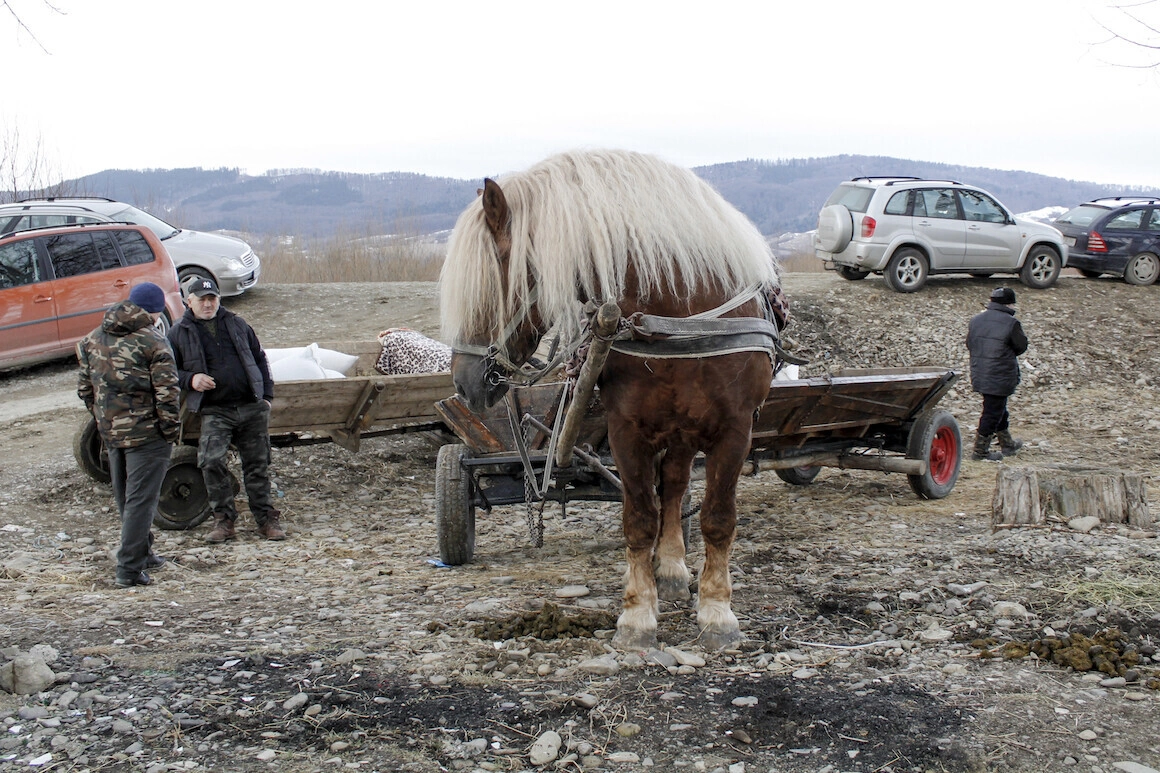
Translated from the Romanian by Ioana Pelehatăi. Read the original here.
